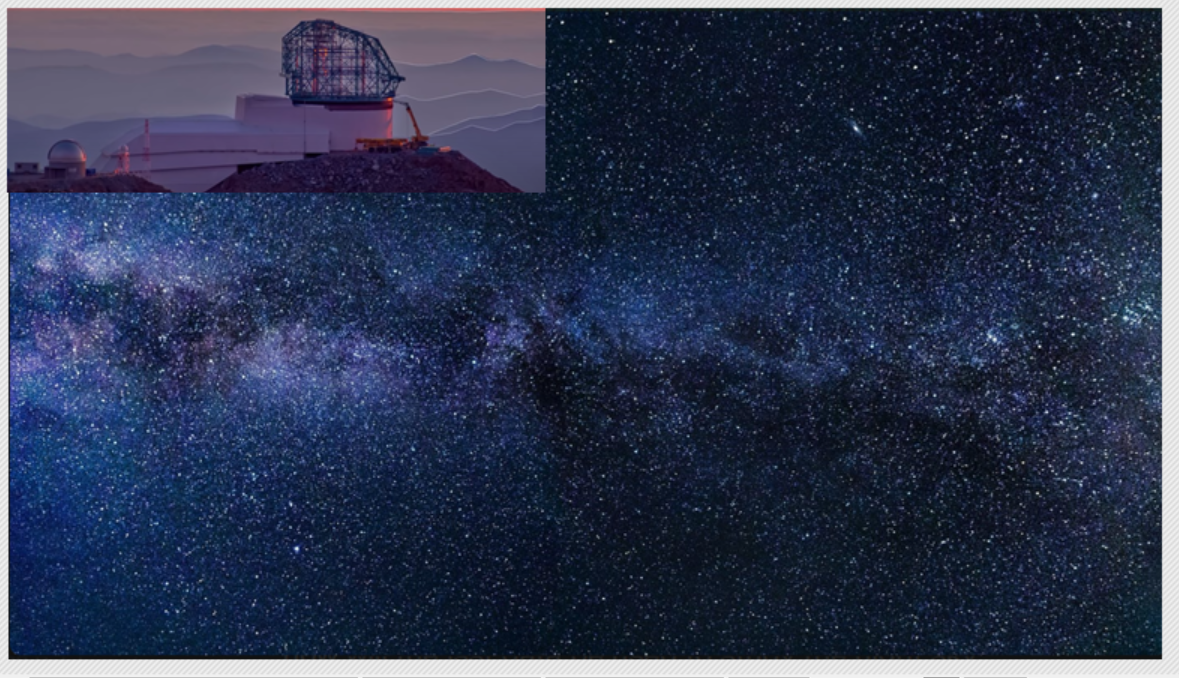Legacy Survey of Space and Time (LSST)
Legacy Survey of Space and Time (LSST) will deliver a 500 petabyte set of images and data products (more than 20 terabytes of data must be processed and stored each night)
tonynetone1 - AI
The Legacy Survey of Space and Time (LSST) is a 10-year project aimed at photographing the entire night sky of the Southern Hemisphere visible from northern Chile. This survey will provide detailed information about the night sky, capturing star trails and celestial phenomena. The LSST utilizes a 3200-megapixel camera with six different optical filters to map the sky in unprecedented detail, covering an area as large as 40 full moons every 3-4 nights. The camera's lenses, filters, focal plane, cryostat, and data acquisition system work together to collect vast amounts of data for researchers to study dark matter, dark energy, galaxy formation, variable stars, supernovae, and more. The LSST Camera is a crucial component of the Vera C. Rubin Observatory in Chile, contributing to expanding our understanding of the universe over the course of this ambitious project
Legacy Survey of Space and Time (LSST) will deliver a 500 petabyte set of images and data products (more than 20 terabytes of data must be processed and stored each night)
tonynetone1 - AI
The Legacy Survey of Space and Time (LSST) is a 10-year project aimed at photographing the entire night sky of the Southern Hemisphere visible from northern Chile. This survey will provide detailed information about the night sky, capturing star trails and celestial phenomena. The LSST utilizes a 3200-megapixel camera with six different optical filters to map the sky in unprecedented detail, covering an area as large as 40 full moons every 3-4 nights. The camera's lenses, filters, focal plane, cryostat, and data acquisition system work together to collect vast amounts of data for researchers to study dark matter, dark energy, galaxy formation, variable stars, supernovae, and more. The LSST Camera is a crucial component of the Vera C. Rubin Observatory in Chile, contributing to expanding our understanding of the universe over the course of this ambitious project
Legacy Survey of Space and Time (LSST)
Legacy Survey of Space and Time (LSST) will deliver a 500 petabyte set of images and data products (more than 20 terabytes of data must be processed and stored each night)
tonynetone1 - AI
The Legacy Survey of Space and Time (LSST) is a 10-year project aimed at photographing the entire night sky of the Southern Hemisphere visible from northern Chile. This survey will provide detailed information about the night sky, capturing star trails and celestial phenomena. The LSST utilizes a 3200-megapixel camera with six different optical filters to map the sky in unprecedented detail, covering an area as large as 40 full moons every 3-4 nights. The camera's lenses, filters, focal plane, cryostat, and data acquisition system work together to collect vast amounts of data for researchers to study dark matter, dark energy, galaxy formation, variable stars, supernovae, and more. The LSST Camera is a crucial component of the Vera C. Rubin Observatory in Chile, contributing to expanding our understanding of the universe over the course of this ambitious project
0 Commentarios
0 Acciones
2K Views




